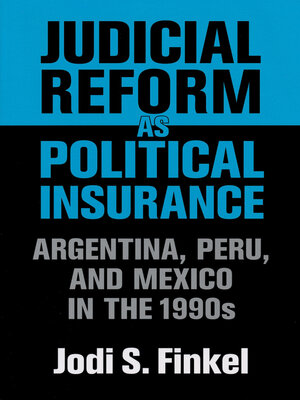Judicial Reform as Political Insurance
ebook ∣ Argentina, Peru, and Mexico in the 1990s · Kellogg Institute Series on Democracy and Development
By Jodi S. Finkel

Sign up to save your library
With an OverDrive account, you can save your favorite libraries for at-a-glance information about availability. Find out more about OverDrive accounts.
Find this title in Libby, the library reading app by OverDrive.



Search for a digital library with this title
Title found at these libraries:
| Loading... |
During the 1990s, judicial reform swept Latin America. While some of the region's supreme courts have been able to exercise increased power as a result of these reforms, others have not. Why do some instances of judicial reform appear to be leading to the development of a powerful judiciary while others have failed to do so? In this careful analysis, Jodi S. Finkel investigates judicial reform in Argentina, Mexico, and Peru. She suggests that while ruling parties can be induced to initiate judicial reforms by introducing constitutional revisions, they often prove unwilling to implement these constitutional changes by enacting required legislation.
To understand the outcomes of judicial reform, as well as to predict where reforms are likely to empower courts, it is necessary to examine the political incentives faced by politicians at the implementation phase. Finkel argues that the implementation of judicial reform may serve the ruling party as an insurance policy, in that a strong judicial branch reduces the risks faced by a ruling party once it loses power and becomes the opposition. Finkel suggests that as the ruling party's probability of reelection declines, the likelihood of the enactment of reforms resulting in an empowered judiciary increases.






